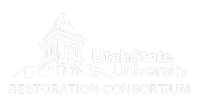Utah State University Administered Courses
In Fall 2025, we will be offering an advanced LTPBR course series for the first time. These courses are meant to be a continuation of your existing LTPBR training and are available to take individually or as a series.
Participants will build on existing LTPBR planning, implementation, and monitoring skills. Practitioners will gain the advanced screening, planning, design, and monitoring skills to lead watershed and riverscape scope projects.
- Advance the skills to plan LTPBR restoration projects
- Use Riverscapes Studio to prepare a design report and regulatory permit application
- Learn how to monitor and assess riverscape health
- Practice advanced geospatial analysis of riverscape network models to screen, filter, contextualize, and prioritize restoration actions
These courses fulfill graduate-level University Credit or University Continuing Education Units
These courses are assessed, and you will receive feedback and a letter grade based on your assessed work.
| Course # | Course Title | Dates | Time | Cost | Link to Register |
|---|---|---|---|---|---|
| CEWA 6626 | Advanced LTPBR Planning of Riverscapes | Sep 29 - Oct 2, 2025 | All Day | $315 | Register |
| CEWA 6627 | Advanced LTPBR Design of Riverscapes | Oct 6 - Oct 9, 2025 | All Day | $315 | Register |
| CEWA 6628 | Riverscape Monitoring | Oct 27 - Oct 30, 2025 | All Day | $315 | Register |
| CEWA 6629 | Screening & Prioritization of Riverscapes | Nov 10 - Nov 13, 2025 | All Day | $315 | Register |
CERP - Compliant
Our program and the LTPBR curriculum have undergone a review by the Society of Ecological Restoration so that these courses count towards their Certified Ecological Restoration Practitioner Program.


